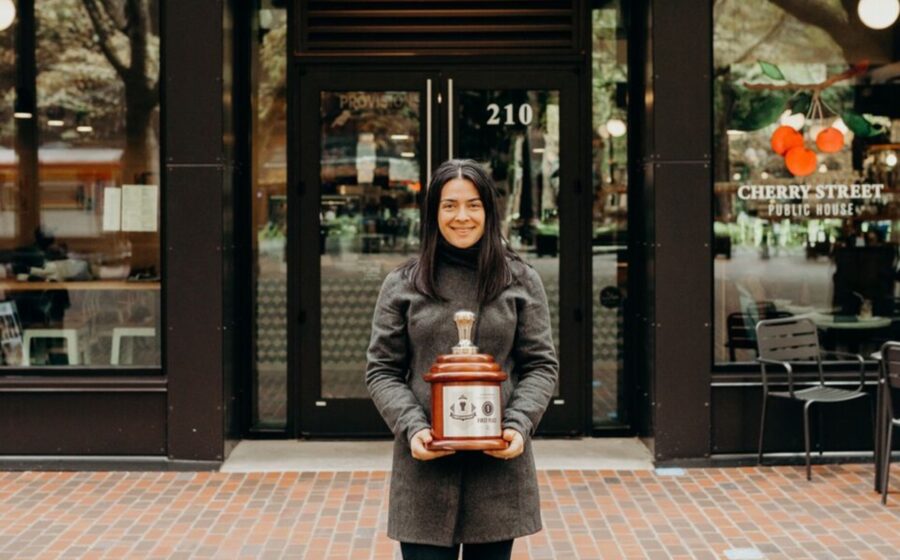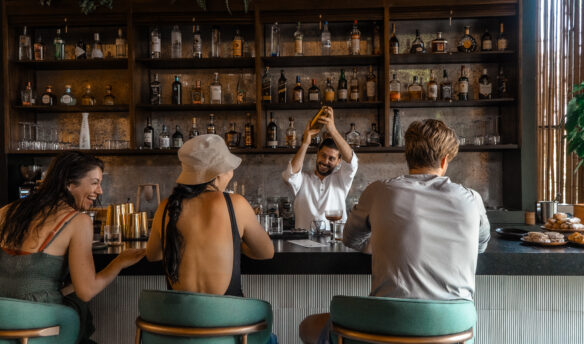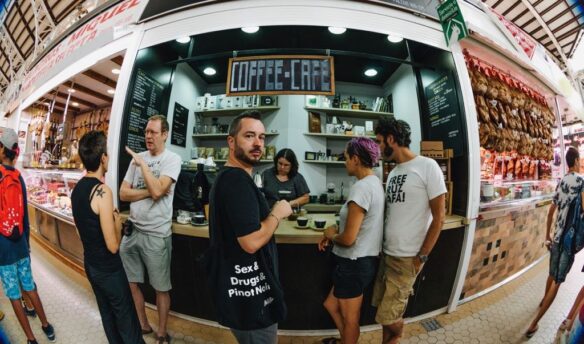Laila Ghambari grew up around coffee. Her father immigrated to the United States from Iran and opened Cherry Street Coffee House in Seattle with her mother in 1997. As a young child, she would go with her father to the coffee shop and fall asleep in the back on bags of coffee.
As a teenager, she began working in the cafe, but she didn’t think a career in coffee was her future—she was interested in teaching preschool. But as she continued to dip her toes in the industry, she fell in love with coffee and learned she could pursue her teaching aspirations by being a coffee educator.
At this point, Ghambari has seen many sides of the coffee industry—she’s worked for Seattle-based chains like Caffe Ladro, national brands like Stumptown Coffee Roasters, and even returned to Cherry Street for a time. She’s also the 2014 United States Barista Champion, served as a member of the Barista Guild Executive Council, and is now a coffee business and career coach, helping both businesses and people realize their potential. She’s intimately familiar with the many career paths open to coffee workers but also knows it can be a struggle to find your footing—and it can take years before landing a salaried position.
Jobs within the coffee industry can seem few and far between. As a barista, it can feel like there’s only one pathway to advancement: either become a cafe manager or bust. But Ghambari knows this is not true and that many career paths within the industry can support your long-term goals. With investment and a little planning, you might even be able to carve those paths for yourself—Ghambari is here to tell you how.
Fresh Cup: Let’s say you’re a barista wanting to explore your career options: what’s the first thing you should do?
The first thing I encourage people to do is a values assessment. What are your short and long-term goals? What is it that you really enjoy? What is it that you want to develop in yourself? What do you think your biggest strengths are?

Things like that can help people frame what their values are. You might find value in building up your knowledge base or connecting with people—or it could be, “I want to have a prestigious title,” or “I want to make as much money as possible.” Whatever your values are, recognize them because they will direct which way you should go.
If you want to make as much money as possible, you need to think about the career path that will earn you the most money. Certain positions are going to make you more money than others, like positions in leadership. You need to focus your knowledge-building and expertise in that direction.
It’s also about asking, “What are you passionate about? What do you enjoy doing?”. There’s no one career path that you have to follow in coffee—it’s not just barista to cafe manager to cafe owner. The opportunities in coffee are vast, so I encourage people to consider all options.
What are some of those options?
I encourage people to consider the operations side of things—not just coffee shop operations, but roasting operations, e-commerce, and manufacturing, for example.
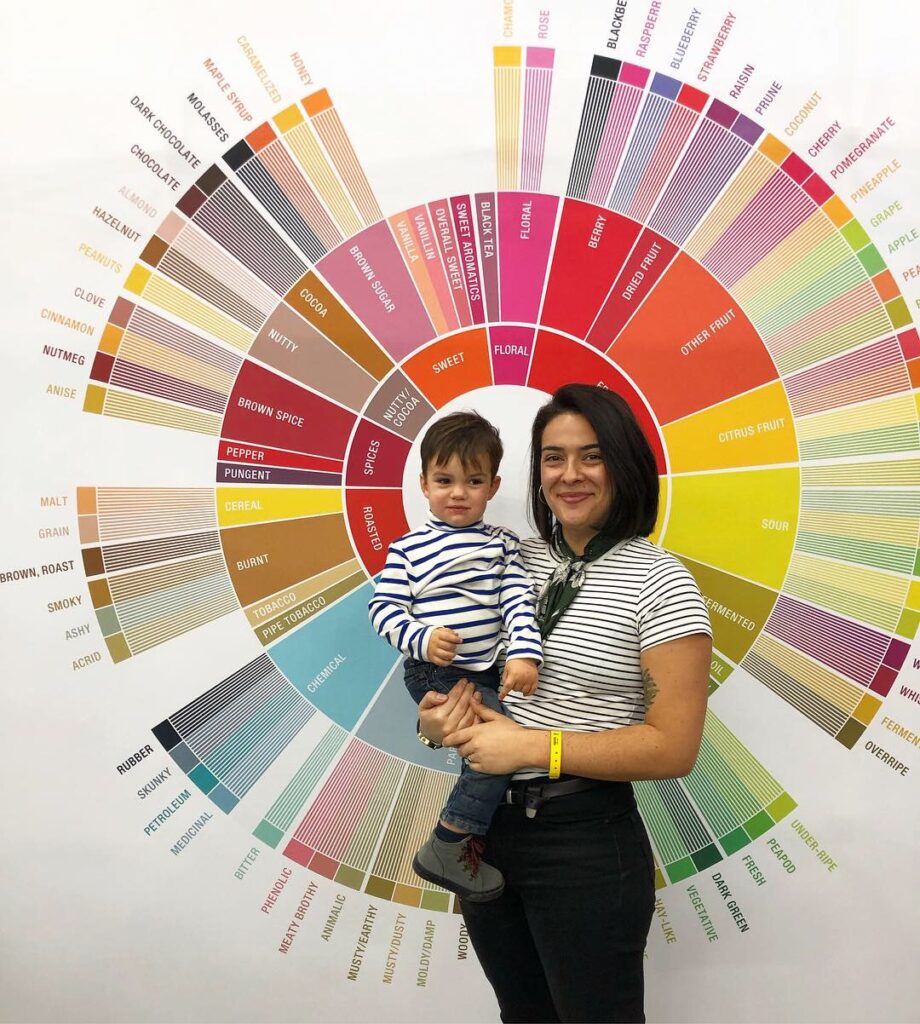
The world of sales is vast. You could work on inside sales, customer support, customer success, or account management. There are a lot of different areas in coffee where you’re not actually making coffee, but you’re supporting or selling products to people within the realm of coffee. That’s equipment, syrup, creative marketing, PR, community engagement—that’s all in coffee.
Is a degree required to move up in the industry?
I think the way the coffee industry works, if there’s something you’re really passionate about, you don’t need a degree to get there, but you should be investing in knowledge. I don’t have a college degree, and I got where I am because I invested in knowledge and sought information.
How can people invest in their future?
When it comes to events, return on investment is something we all have to calculate. What am I going to get out of attending this event? What is it going to cost me? What am I going to get out of it?
Let’s take the Specialty Coffee Association’s annual Expo as an example. If you have to fly to Expo, you have to figure out lodging and pay for rides and food. That’s a lot of money. What are you going to get out of attending? Are you attending lectures? Are you walking the show floor and making connections? Are you learning about new products? Are you networking? Then that’s probably a good investment.
When you show up at an event like Expo, have an itinerary and a plan. If your goal is to move into the marketing realm, go to every booth and ask if their marketing person is there. Introduce yourself, ask questions, get their card, and email them afterward. Get your name on people’s lips— that’s how you build connections.
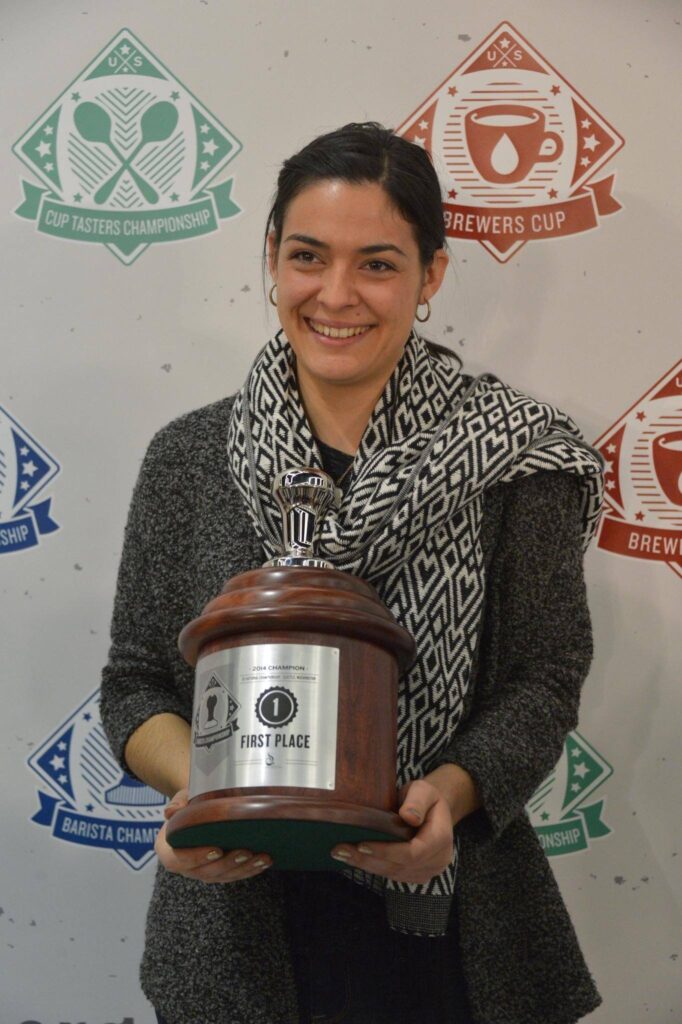
I’d also encourage people to volunteer at events because they can gain hands-on experience, build connections with people, and show others they’re working and that they’re willing to invest. Showing initiative is a really important skill.
Let’s turn things around and look at business owners: how can they help support workers looking to build career paths in coffee?
This is a tough question—a lot of small business owners just don’t have the opportunity to provide growth opportunities for their employees. When I talk about the different roles in the coffee industry, my advice applies more to large coffee roasting companies, where there is more room to grow. But I don’t think there aren’t growth opportunities for small businesses—it just looks a little bit different. You need to be transparent about what those opportunities are and then be creative in what you can offer.
First and foremost, smaller shops need to recognize that they can’t promise growth opportunities for employees when there aren’t any to give. It’s ok to acknowledge that someone is going to move on from your business—if you hire a go-getter who wants to grow, they’re not going to stay with you if there are no opportunities. They still might make a significant impact on your business, and I don’t think it’s a bad thing to see great people move on.
Hopefully, the benefit is what I call a waterfall of knowledge. If you have a great employee you know will eventually move on because they’ve outpaced your company’s growth opportunities, allow them to share knowledge and information and mentor other employees. You’re doing two things: you’re helping develop that person, and you are helping that person develop leadership and mentorship skills. They’re doing their job well, but then they’re feeding that knowledge to the people around them and gaining a skill set. Your goal should be to be profitable enough to invest back into some of your key employees.
You’ve talked before about the importance of mentors. What should someone look for in a mentor?
I think a mentor can be anyone who inspires you, whether that’s someone whose career you admire or who is incredibly knowledgeable—whatever the situation is. It’s about discovering what you value and seeking out people you want to learn from. It doesn’t even need to be, “I want to be in marketing, and so I’m going to look for a marketer as a mentor.” A good mentor might just be someone you’ve seen grow their career, who’s been thoughtful about what companies they work for, or who works at a company you want to work for someday.

And sometimes, you might think someone is inspirational, and then you meet with them, and they don’t have it all figured out. That’s a good learning opportunity to see what looks like success from the outside is not always reality.
If you’re reaching out to a potential mentor, recognize that people are probably very busy. You need to be very thoughtful about the time you ask them to commit to you. If you ask them to meet for an hour, show up prepared: have questions, or even send them questions ahead of time to show them that you’ve thought about this meeting.
What’s one takeaway you’d like to leave for baristas looking to grow in coffee?
Ultimately, I’m a big fan of strategy. If you decide that coffee is something you want to pursue as a career, start to build a strategy and figure out what that looks like. Build a realistic timeline: if I’m new to this industry, how long will I need to be a barista? How long will I need to be in this role before I meet my goal?
I would strongly encourage people not to move around a lot. I do recognize that to grow, you do need to change roles, but be strategic about how that looks on your resumé. If you want to grow, try and find a bigger company to work for—don’t work at five small companies to get to that big company. Stick with one company and grow as much as you possibly can, if it’s a good work environment, of course. Again, mentorship is important because mentors can help you work through tough issues, like if you’re struggling at work.
I’ve been working in coffee for 20 years. As I moved into leadership positions, my goal was to make six figures, which took me 12 years. I did that by taking on leadership positions at large companies where I managed double-digit teams of people. It takes a while to get there, but you can make good money in the coffee industry. If that’s the goal, then you have to start building a path.



